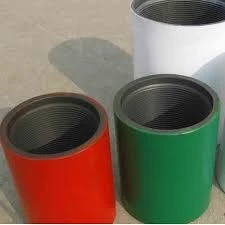- Afrikaans
- Albanian
- Amharic
- Arabic
- Armenian
- Azerbaijani
- Basque
- Belarusian
- Bengali
- Bosnian
- Bulgarian
- Catalan
- Cebuano
- Corsican
- Croatian
- Czech
- Danish
- Dutch
- English
- Esperanto
- Estonian
- Finnish
- French
- Frisian
- Galician
- Georgian
- German
- Greek
- Gujarati
- Haitian Creole
- hausa
- hawaiian
- Hebrew
- Hindi
- Miao
- Hungarian
- Icelandic
- igbo
- Indonesian
- irish
- Italian
- Japanese
- Javanese
- Kannada
- kazakh
- Khmer
- Rwandese
- Korean
- Kurdish
- Kyrgyz
- Lao
- Latin
- Latvian
- Lithuanian
- Luxembourgish
- Macedonian
- Malgashi
- Malay
- Malayalam
- Maltese
- Maori
- Marathi
- Mongolian
- Myanmar
- Nepali
- Norwegian
- Norwegian
- Occitan
- Pashto
- Persian
- Polish
- Portuguese
- Punjabi
- Romanian
- Russian
- Samoan
- Scottish Gaelic
- Serbian
- Sesotho
- Shona
- Sindhi
- Sinhala
- Slovak
- Slovenian
- Somali
- Spanish
- Sundanese
- Swahili
- Swedish
- Tagalog
- Tajik
- Tamil
- Tatar
- Telugu
- Thai
- Turkish
- Turkmen
- Ukrainian
- Urdu
- Uighur
- Uzbek
- Vietnamese
- Welsh
- Bantu
- Yiddish
- Yoruba
- Zulu
Understanding the Concept of Bull Plug in Various Contexts and Applications
Understanding Bull Plug Definition and Applications
In the world of engineering and manufacturing, the term bull plug often comes up in discussions related to piping systems and fittings. A bull plug is a specific type of pipe fitting that is commonly used in various industrial applications. To fully grasp what a bull plug is, let's delve into its definition, features, and applications.
Definition of Bull Plug
A bull plug is essentially a type of threaded plug or stopper that is used to seal the end of a pipe. It is characterized by its rounded, bull-like shape that allows it to fit snugly into the pipe opening. The primary purpose of a bull plug is to provide a secure closure for the pipe, preventing the escape of fluids or gases and protecting the interior of the pipeline from contaminants.
Bull plugs are typically made from a variety of materials, including metal (such as stainless steel, brass, or carbon steel) and plastic. The choice of material often depends on the specific requirements of the application, such as the type of fluid being transported, the pressure levels, and the operating environment.
Features of Bull Plugs
1. Threaded Design Most bull plugs come with external threads that allow them to be screwed into the corresponding internal threads of a pipe. This ensures a secure fit and makes installation and removal relatively easy.
2. Variety of Sizes Bull plugs are manufactured in a wide range of sizes to accommodate different pipe diameters. This versatility makes them suitable for various applications, from residential plumbing to large-scale industrial systems.
3. Sealing Capabilities Bull plugs are designed to provide effective sealing, ensuring that no leakage occurs at the closure point. This is crucial for maintaining the integrity of piping systems, especially those handling critical fluids or gases.
bull plug definition

4. Corrosion Resistance Depending on the material used, bull plugs can be resistant to corrosion and other harmful environmental factors. This characteristic extends the lifespan of the plug and the associated piping system.
Applications of Bull Plugs
Bull plugs are utilized in a myriad of applications across different industries. Some common areas where bull plugs are found include
1. Oil and Gas In oil and gas operations, bull plugs are used to seal pipe ends when sections are removed for maintenance or replacement. This ensures that harmful gases do not escape and that the work area remains safe.
2. Water Supply and Treatment In municipal water systems, bull plugs can be used to temporarily seal pipes during repairs or construction work. They help maintain pressure within the system and prevent contamination.
3. Chemical Processing In chemical plants where hazardous materials are handled, bull plugs are essential for securing pipes and preventing leaks, which could pose safety and environmental risks.
4. HVAC Systems Bull plugs are often used in heating, ventilation, and air conditioning systems to seal off unused or terminated pipe runs.
Conclusion
In summary, understanding the bull plug and its significance in piping systems is crucial for engineers, maintenance personnel, and anyone involved in industrial operations. With their ability to provide secure closures, effective sealing, and compatibility with various pipe sizes and materials, bull plugs play an essential role in ensuring the safety and efficiency of numerous applications. As industries continue to evolve and demand better solutions for piping integrity, the importance of reliable fittings like bull plugs will only grow.
-
Tubing Pup Joints: Essential Components for Oil and Gas OperationsNewsJul.10,2025
-
Pup Joints: Essential Components for Reliable Drilling OperationsNewsJul.10,2025
-
Pipe Couplings: Connecting Your World EfficientlyNewsJul.10,2025
-
Mastering Oilfield Operations with Quality Tubing and CasingNewsJul.10,2025
-
High-Quality Casing Couplings for Every NeedNewsJul.10,2025
-
Boost Your Drilling Efficiency with Premium Crossover Tools & Seating NipplesNewsJul.10,2025







